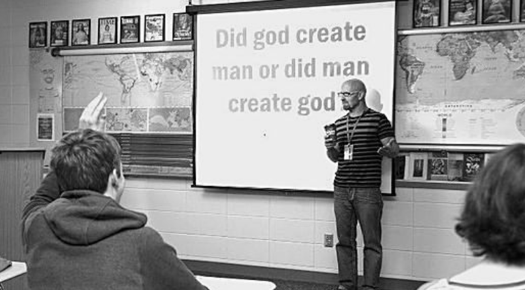
Despite the fact that the Ireland Census showed that the largest rise of any religious demographic is among non-religious people, most schools in Ireland are still under the religious patronage (ownership). There are actually 468,421 Nones in Ireland, up from 269,811 five years ago, which is a 73.6% increase since the previous count.
In the Republic of Ireland, the vast majority of the country's primary schools are owned or managed (or both) by religious organizations. In 2007, and of the national total of 3,279 schools, 3039 (92.7%) were controlled by the Catholic Church; 183 (5.6%) were controlled by the Church of Ireland; 0.7% were controlled by other religious organizations while 1% were controlled by organizations which were not affiliated with any particular religion.
This tradition of religious patronage is increasingly at odds with Ireland’s contemporary multicultural and multireligious society and raises pan-European questions of human rights, especially children’s rights, in the sphere of taxpayer-funded education.
Parents have a constitutional right to opt their kids out from learning about religion but, the problem is that “opting out” sometimes doesn’t mean those kids can take another class or even leave the classroom. In fact, its policy for second-level students is that they must remain in religion class at all times and not take part in any other activity. According to documents obtained by Atheist Ireland under the Freedom of Information Act, students who opt out from religious class can do nothing during religious lessons:
“The students may not undertake homework or study or any other subject related project relevant to the curriculum to be examined in the State Examinations during the Religious Education class. Instead, he or she will be given specified work to do by the Religious Education teacher. The rationale for this is to ensure that no unfair advantage accrues to students opting out of Religion Education but rather to ensure that all students have equality of opportunity time wise when it comes to examination preparation within the school day. The given work will aim to ensure that the student is being educated in the broadest possible way. (The usual school rule about the non-wearing of earphones applies to students in this situation).”
Non-religious students shouldn’t be treated like second class citizens, especially when they could be using that time to learn things that will actually help them in their future life.
Good news for many parents and students is that these rules will change in the future. Department of Education officials are finalizing a circular aimed at modernizing decades-old rules over the teaching of religion in community, comprehensive and Education and Training Board (ETB) schools. More broadly, the move is likely to be seen as the latest attempt by the State to wrest back control of its schools from the Church.
Photo Credits: Teach not Preach
